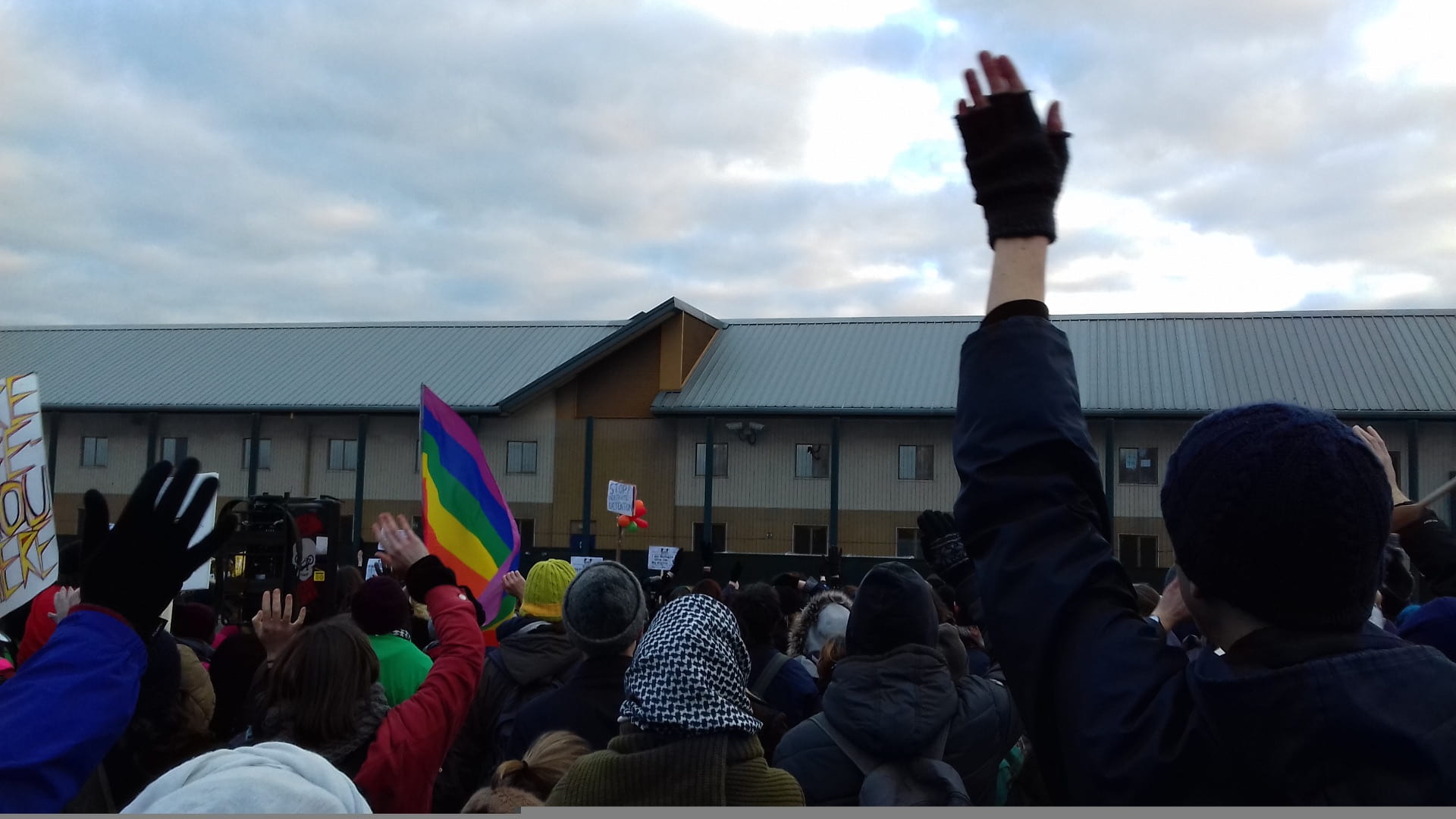As a university Centre of Research and Enterprise Excellence we are keen to support and strengthen our collaborations with student researchers at all stages of their studies. This year, we were proud to offer a student research internship that enabled an undergraduate from the School of Applied Social Science to work together with an academic member of the Centre (Dr Raphael Schlembach) on a project throughout June 2020. In this post, the internship recipient, Beth Hudson, reflects on what she found.
For a while now, I have had an interest in migration and immigration rights and laws. As a third year student on the BA Psychology & Criminology, my dissertation was a discourse analysis of the construction of cultural identities in Britain. I was glad that the internship allowed me to continue with research in this area.
The project I worked on is called ‘The politics of in/visibility in immigration detention’ and is led by Dr Raphael Schlembach. It focuses on the public inquiry into Brook House Immigration Detention Centre, a detention facility near Gatwick Airport.
Before I started, I had some background knowledge of immigration detention in the UK already. I chose the module ‘Criminology of Borders’ in my third year, which, for me, was the most interesting module of my degree. The module allowed us to explore the increasing criminalisation of migration and the effects this has on different people.
What struck me most was that it is those who are already vulnerable who are most affected by the criminalisation of migration. They may be moving due to forced migration for economic or environmental reasons or they may be seeking asylum. Some travel for months at a time to try and reach safety, risking or losing their life, but there are also many inspiring stories of people overcoming seemingly impossible situations or coming in solidarity to help one another. For the module I wrote a book review essay on Mary Bosworth’s book ‘Inside Immigration Detention’. It allowed me to confidently start working on the research project.
My contribution to the research project was an academic literature review on legitimacy of immigration detention. I have also been looking into the Brook House public inquiry and other ongoing public inquiries. Some questions I have been working with were: what is the scope of the public inquiry; what will happen to immigration detention post Covid-19?
The UK has one of the largest detention systems in the world. Immigration detention is a complex topic to discuss; the centres are often likened to prisons but their purpose is disputed. People who are detained cannot be stereotyped, they come from all walks of life. The Detention Custody Officers, the staff who work day-to-day with the detainees, also come from a variety of backgrounds; from ex-military to being straight out of school.
In 2017, a BBC Panorama undercover reporter documented abuse and mistreatment of detainees in Brook House IRC near Gatwick. After legal proceedings, a High Court judge ordered the Home Office to appoint a public inquiry, under the 2005 Inquiries Act. The public inquiry, although important, has limited scope. It is able to investigate within the time frame that the Panorama investigation was filmed, and really only with the aim of improving how immigration detention functions. But there are more systemic questions to be raised, including about the fact that the UK places no time limit on detention and about the legitimacy of immigration detention as a whole.
Unfortunately, due to Covid-19 restrictions, my research was desk-based and all interaction with researchers in the Centre was virtual. But I am interested in carrying on with research on migration and human rights. My next steps will be to apply for a postgraduate degree in Migration Studies and to develop a proposal for the PhD programme at the University of Brighton.
Beth Hudson
Third year student, BA (Hons) Psychology & Criminology, University of Brighton
Image credit: Raphael Schlembach



Leave a Reply